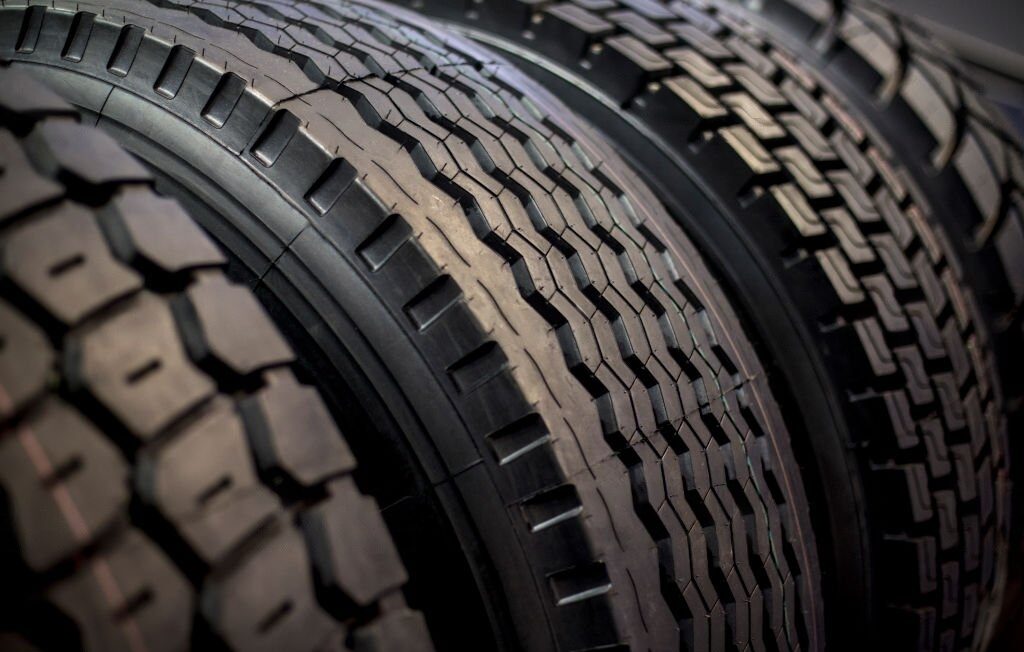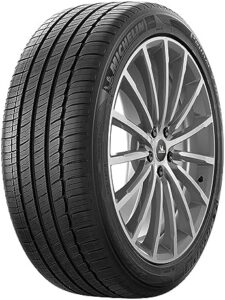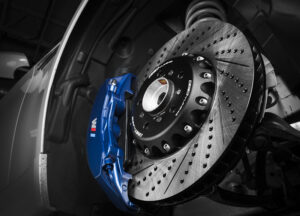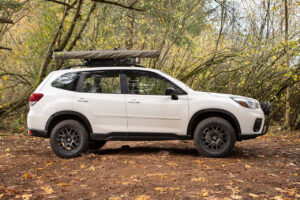
11R 22.5 Tires
Venturing into the world of trucking, one realizes that the choice of tires is not just a matter of rolling forward - it's about embracing the journey with the right gear. Among the myriad options, 11R 22.5 tires emerge as a beacon of reliability. Their popularity is not unfounded, for these tires blend the triumvirate of durability, versatility, and affordability with an almost artistic finesse.
In this guide, we shall embark on an exploratory voyage into the essence of 11R 22.5 tires. It's a tale not just of what they are, but of the myriad benefits they usher in.
We'll delve into the diverse sizes available, ensuring that you, the reader, can discern the perfect fit for your vehicular companion.
Moreover, this narrative will not merely skim the surface; it will dive into the crucial aspects of procurement, highlighting what to vigilantly scout for when purchasing these round marvels.
Furthermore, the saga does not conclude with acquisition. The subsequent chapters of tire ownership – installation and maintenance – are equally pivotal. These chapters are often overlooked yet they hold the key to the longevity and performance of your tires. Through this comprehensive guide, we aim to elevate your understanding and appreciation of 11R 22.5 tires, transforming a routine purchase into a well-informed decision. Let’s begin this journey, shall we?
What Are 11R 22.5 Tires?
Delving into the realm of vehicular fortitude, one finds the 11R 22.5 tires, a marvel in the world of trucks and commercial vehicles. These behemoths of rubber and steel, designed to cradle rims measuring an imposing 22.5 inches in diameter, embody resilience and adaptability. They are not just tires; they are the unsung heroes of the asphalt jungle, shouldering immense burdens and traversing diverse terrains with unwavering grit.
Imagine a tire that not only carries the weight of hefty loads but also whispers promises of steadfast traction across a kaleidoscope of road surfaces. This is the essence of the 11R 22.5 tire. A tire, yes, but also a testament to human engineering, crafted to conquer the capricious moods of Mother Nature and the relentless demands of the road.
In this tire’s universe, variety reigns supreme. You have steer tires, the guardians of the front axle, steering the behemoth with precision and grace. The drive tires, robust and unyielding, command the rear axle, infusing the vehicle with the power to forge ahead. And then, the trailer tires – silent, unassuming, yet bearing the Herculean task of supporting the load, the very lifeblood of the transportation industry.
But why, you might ask, should one opt for the 11R 22.5 tires?
The answer lies in a trio of virtues. First, durability – these tires don’t just endure; they thrive under the pressures of heavy loads and the relentless pounding of long journeys. Second, versatility – a tire for all seasons, unflinching in the face of rain, shine, or the unpredictable whims of weather. And third, affordability – a surprising grace note in this symphony of strength and reliability, offering a budget-friendly solution in a world where cost and quality often spar.
Thus, the 11R 22.5 tire stands not merely as a component of a vehicle but as a symbol of endurance, adaptability, and economic savvy, an indispensable ally in the ceaseless quest to keep the wheels of commerce and industry turning.
Double Coin RR150 Premium 5-Rib Steer/All-Position Multi-Use Commercial Radial Truck Tire - 11R22.5
Double Coin RR150 Premium 5-Rib Steer/All-Position Multi-Use Commercial Radial Truck Tire - 11R22.5

Sizes of 11R 22.5 Tires
Venturing into the intricate realm of tire dimensions, specifically the 11R 22.5 variants, one embarks on a fascinating journey through a myriad of sizes. Predominantly, the sizes that seize the spotlight in the marketplace are the 295/75R22.5 and the 315/80R22.5. These figures, cryptic to the uninitiated, are the tire’s passport to identity: encompassing the overall diameter, the section width, and the all-important aspect ratio.
Choosing the ideal tire size is not merely a matter of fitting it snugly onto your vehicle; it’s a critical decision that influences the performance and safety of your journey. Commercial tires, in their diverse glory, often come in popular sizes like 11R22.5, 295/75R22.5, and the slightly larger 285/75R24.5. Each size, a unique answer to the varied demands of the road, speaks volumes about the nuances of vehicular performance.
In essence, selecting the right tire is akin to choosing the perfect pair of shoes: a balance of comfort, style, and suitability for the occasion. With tires, it’s a dance of dimensions, each step carefully measured and profoundly impactful.
What to Look for When Buying 11R 22.5 Tires?
When buying 11R 22.5 tires, it’s essential to consider the following factors:
- Load Range: Make sure to choose the correct load range based on the weight of your vehicle and the load it will carry.
- Tread Depth: A deeper tread provides better traction and longer tire life.
- Brand: Stick with reputable brands known for their quality and durability.
- Price: Don’t always go for the cheapest option; investing in high-quality tires will save you money in the long run.
Installation Tips for 11R 22.5 Tires Proper tire installation is crucial to ensure safe and efficient driving. Here are some tips for installing 11R 22.5 tires:
- Check the Rim: Ensure the rim is the right size and in good condition before mounting the tire.
- Use Proper Equipment: Use a tire mounting machine and proper lubrication to avoid damaging the tire or the rim.
- Inflate the Tire: Inflate the tire to the recommended air pressure to prevent overloading or underloading.
Maintenance Tips for 11R 22.5 Tires Proper tire maintenance is crucial for their longevity and safety. Here are some tips for maintaining 11R 22.5 tires:
- Check Air Pressure: Regularly check the air pressure to prevent underinflation or overinflation, which can cause premature wear and tear.
- Inspect the Tread: Check the tread depth regularly and replace the tire if it’s worn out.
- Rotate the Tires: Rotating the tires regularly promotes even wear and tear.
- Wheel Alignment: Proper wheel alignment helps prevent uneven tire wear and improves fuel efficiency.
Embarking upon the journey of selecting semi-truck and commercial truck tires, one plunges into an intricate labyrinth of considerations, pivotal in defining the synergy between a mammoth of a vehicle and the relentless asphalt. These tires, undeniably, are the unsung heroes in the grand scheme of logistics and transportation. They bear the herculean responsibility of hauling hefty cargoes over sprawling distances. Hence, the quest for the ideal tire is not merely about a purchase; it’s a strategic decision entwined with the very sinews of the transport industry.
Let’s delve into the crux of this matter. The load range – a term that might seem prosaic yet encapsulates a profound significance. It’s the tire’s ability to support varying weights, a critical factor considering the diverse demands placed upon these mechanical beasts. Coupled with this is the tire size – not just a number, but a reflection of compatibility with the vehicle, ensuring that the tire doesn’t just fit, but complements the truck’s physique.
Venturing further, we encounter the overall diameter, a dimension that’s not to be overlooked. This parameter is instrumental in dictating the tire’s contact with the road, influencing everything from fuel efficiency to handling. In the same vein, tread depth demands attention. It’s a feature that speaks volumes about grip, safety, and longevity. Deep treads whisper promises of steadfast grip on slippery roads, while shallow treads hint at a life spent on smoother paths.
This exploration is not just about technicalities; it’s about understanding the lifeblood of commercial transportation. Each aspect, from load range to tread depth, intertwines to paint a picture of endurance, safety, and efficiency. Thus, when the time comes to make that pivotal choice, remember, it’s not just a tire – it’s the foundation upon which the behemoths of the road stand tall.
Load Range
In the intricate world of vehicular support, the concept of “load range” emerges as a pivotal criterion in the selection of tires for diverse vehicular categories like semi-trucks, commercial trucks, and light trucks. This term, ‘load range’, signifies the tire’s capacity to bear weight. Opting for a tire that aligns with the correct load range is not just a matter of choice, but a necessity to guarantee the tire’s ability to sustain the vehicle’s heft and the additional load it carries. This crucial characteristic is often denoted by a letter – think ‘C’, ‘D’, ‘E’ – artfully embossed on the tire’s sidewall, a subtle yet significant marker of its capacity.

Tread Depth and Overall Diameter
Navigating the labyrinthine world of semi-truck and commercial truck tires, one can't help but ponder the intricacies of tread depth. This elusive yet crucial element, embodied in the grooves carved into the tire's surface, plays a pivotal role in the grand theater of traction and handling. Imagine, if you will, a tire's journey, where each groove delves 4/32 of an inch deep - the legal threshold, marking the boundary between compliance and risk. In a parallel narrative, the overall diameter of these tires emerges as a protagonist in its own right. This measure, encompassing the entirety of the tire - from the rugged terrain of the tread to the stoic presence of the sidewall - is not merely a number. It's a testament to the tire's identity, ensuring a harmonious fit and impeccable performance on the relentless roads they traverse. Thus, in this intricate dance of dimensions and depths, one must embrace both the perplexity and burstiness of choices. For in the realm of semi-truck and commercial truck tires, it is not just about selecting a tire but understanding the poetry hidden within its structure.
Common FAQs About 11R 22.5 Tires
The lifespan of 11R 22.5 tires depends on several factors such as the type of vehicle, load, and driving conditions. With proper maintenance, they can last up to 5 years or more.
An 11R 22.5 tire is a standard size tire used on commercial trucks and trailers, with a diameter of 41.5 inches (105.4 cm), a width of 11 inches (27.9 cm), and a rim diameter of 22.5 inches (57.2 cm).
The weight of an 11R 22.5 tire can vary depending on the brand and model, but on average, it weighs around 120 pounds (54.4 kg).
The most common semi-truck tire size is the 22.5-inch diameter tire, with various widths ranging from 8.25 inches to 14 inches.
The longevity of a semi-truck tire depends on factors such as the brand, the type of tire, and how well it is maintained. Some tires that are known for their long life include the Michelin XZA3+ EVERTREAD and Bridgestone M710 Ecopia.
The cost of an 11R 22.5 tire varies depending on the brand and model, but on average, it can cost anywhere from $200 to $600 per tire.
The lifespan of a 22.5-inch tire can vary depending on the same factors that affect its longevity. However, with proper maintenance and care, a tire can last up to 5 years or 100,000 miles (160,934 km).
It’s height of an 11R 22.5 tire is 41.5 inches (105.4 cm).
The 11R 22.5 tire size is a standardized code that indicates the tire’s dimensions, with “11” referring to the tire’s width in inches, “R” indicating radial construction, and “22.5” representing the rim diameter in inches.
The weight of a semi-truck tire can vary depending on the size and type, but on average, it can weigh between 100 to 150 pounds (45.4 to 68 kg).
The number of truck tires that can fit in a 40 ft container can vary depending on the tire’s size and weight, as well as the container’s load capacity. However, on average, around 200 to 250 tires can fit in a 40 ft container.
The amount of tire that touches the ground, or the tire’s contact patch, can vary depending on the tire’s size, inflation pressure, and the weight of the vehicle. However, on average, a tire’s contact patch is about the size of a human hand.
To calculate the volume of a tire, you can use the formula: volume = pi * (tire width / 2)^2 * tire aspect ratio * rim diameter, where “pi” is the mathematical constant 3.14, “tire width” is the width of the tire in inches, “tire aspect ratio” is the height of the tire’s sidewall expressed as a percentage of its width, and “rim diameter” is the diameter of the tire’s rim in inches.






